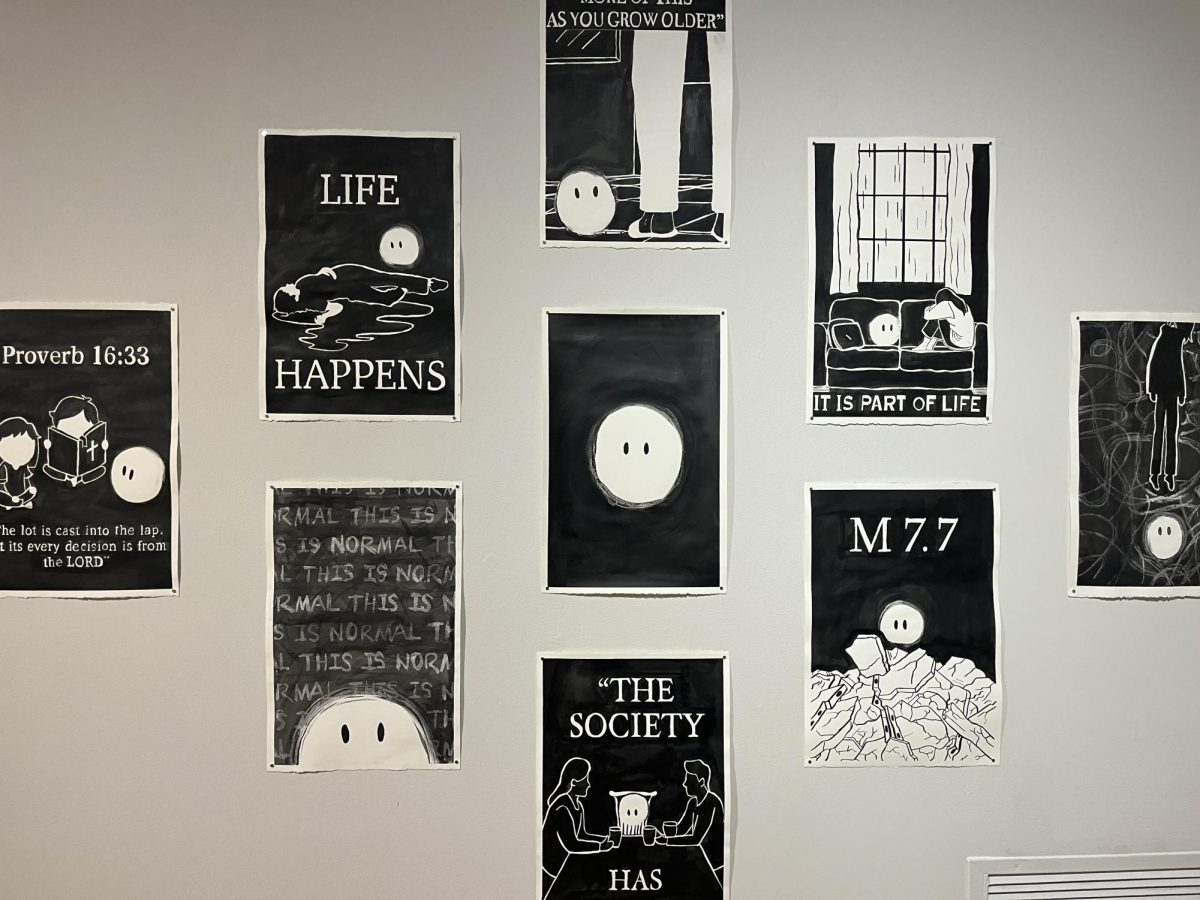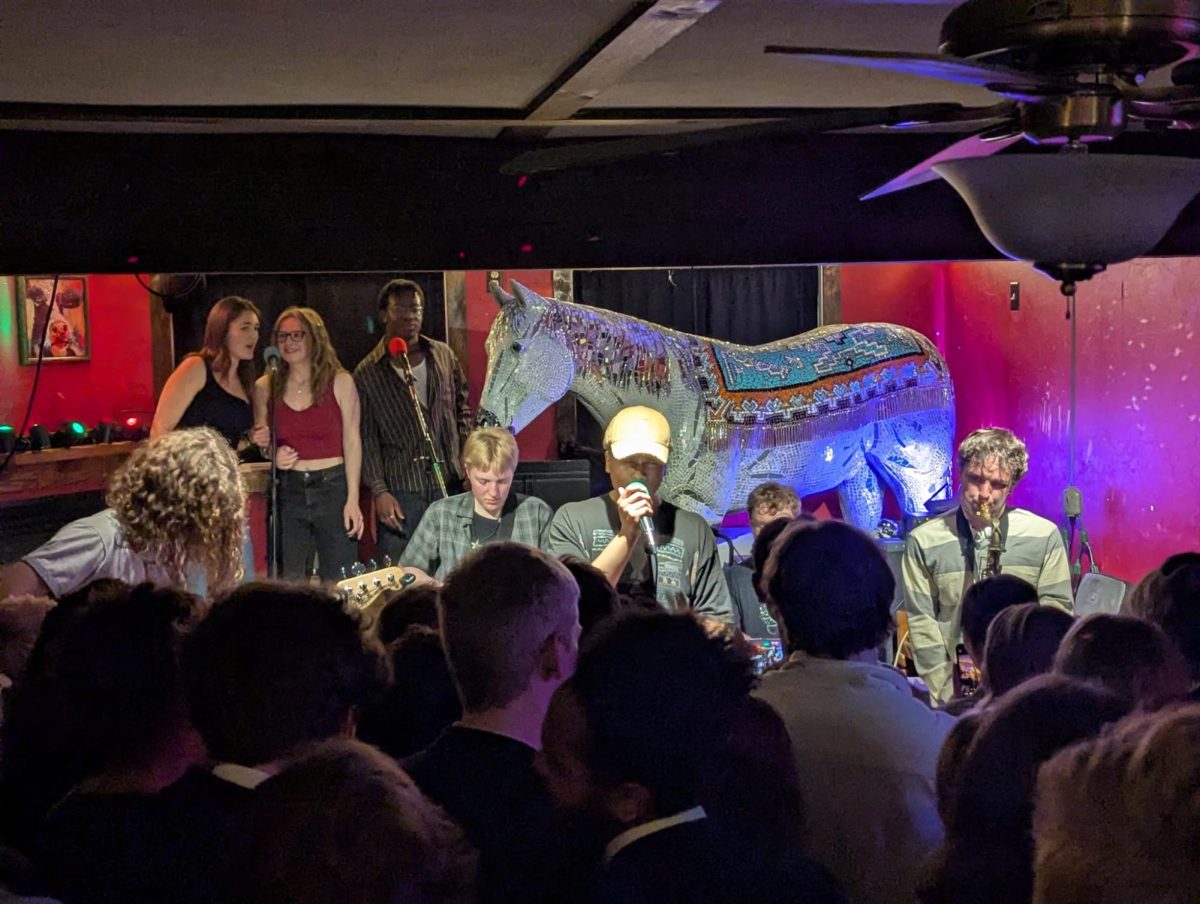Last month, I did the typical Ole thing and studied abroad for Interim. The class was a study of Russian theater, viewing 21 plays in both Moscow and St. Petersburg over the course of the month. Before this trip, I certainly did not recognize the importance of Russian theater, and I had never heard of any Russian theater artists apart from Stanislavski and the two Chekhovs (Anton & Mikhail).
Actually, some part of me thought that the history of Soviet control on arts would have been enough to seriously cripple theatrical development, rendering contemporary Russian theater behind the times or immature. But after a month sitting before Russian stages, my mind has opened up to the beautiful and incredible artistic world of Russian theater.
One of the most significant aspects of Russian theater involves its relationship with the government. In Russia, almost all theaters are state-sponsored, which means that theaters can charge much less per ticket than U.S. venues. And because the average Russian can easily afford a theater ticket, almost all of them consistently go to the theater.
There is also a dark side to state sponsorship, however, in that the Ministry of Culture retains quite a bit of control over the theaters. For example, the Ministry of Culture has periodically evacuated controversial theaters over “bomb threats,” and forced theaters to stop showing productions deemed offensive or overly critical of the government.
But censorship has also become an integral part of the nature of Russian theater. Many artists in Russia believe that it is actually why their theater is so inventive; playmakers reason that if they want to broach contentious subjects, they must find ways to do so indirectly in order to escape the grasp of the Ministry of Culture. Consequently, not only was I wrong in my condemnation of Russian theater, but I criticized censorship, which is central to the success of modern theater.
Another aspect of Russian theater that I appreciated was the general attitude toward the text. Russian directors often take scripts or literature and make bold, new decisions. They subtract the things they deem unnecessary and often add in their own bits. This happens in the U.S. to be sure, but not nearly as much as in Russian shows.
For example, we saw three shows from director Yuri Butusov, who has a habit of adding incredibly loud music and messy stage elements (i.e. water, ink, paint, piles of furniture, etc.). He had an especially interesting take on Anton Chekhov’s play, The Seagull, in which the actors mixed up the order of the show and played certain scenes multiple times. Butusov himself even jumped in at certain points to dance centerstage. His style slapped me across the face and commanded me to pay attention to the stage activity, even though I could not understand the text.
Another example: the set of Hamlet at the Alexandrinsky Theater in St. Petersburg was comprised of stadium bleachers facing away from the audience. The show only lasted an hour, but included characters running up and down the bleachers and through the audience at incredible pace, and a significant change in the mood of certain scenes from the traditional play.
I long for the ability to be able to direct a show as moving as Butusov’s, or as radically different as the Alexandrinsky’s Hamlet. I believe that stories are meant to be kinetic and changeable, as theirs were. It is fascinating to see new takes on old plays. Perhaps there are no new stories, but there are as many ways to tell a particular story as there are people in the world.
I think the reason we go to the theater is to see how a story is told rather than the story itself, and the Russian habit of telling stories in distinct ways is admirable. Butusov’s production of Flight had scenes in it that were not even mentioned in the script. But they told the same story that Mikhail Bulgakov did. The storytelling was what kept the audience engaged.
I took inspiration not only from directors, but from actors as well. The actors we saw were incredible and behind their talent lies a long process of education and training. Actor training schools are widespread, and they are very involved. Actors take courses in academic regions as well as specific theater classes. But at the end of this process, students do not possess the training to take on professional, well-paying jobs. They have been trained as actors and have gambled on their success in the field. The courage to take this plunge is admirable, and encourages me to begin my own acting career.
However, at the end of the day, the question remains: is Russian theater better than American theater? I answer no. Though there are many benefits to Russian theater, there are also downsides.
For example, Russian theater is built on the repertory system. Every theater at any given time has somewhere around 20-30 shows rehearsed and ready to perform. Every night of the week, each theater shows a different play, usually with a set monthly schedule. This can be incredibly exhausting for theatermakers, not allowing actors or technicians much free time at all.
That being said, it is a tad problematic for me to judge two entirely different cultures in that way. I do, however, want to note the differences and wonder what could transfer between the two.
I recommend learning Russian, booking a ticket to Russia, visiting some Russian theaters and sitting back to wonder at the magic of human expression, and the different methods of storytelling that exist. But if you have no intention of following my suggestion to explore the world of Russian theater, perhaps you can at least you can say you have experienced it vicarously through me.



